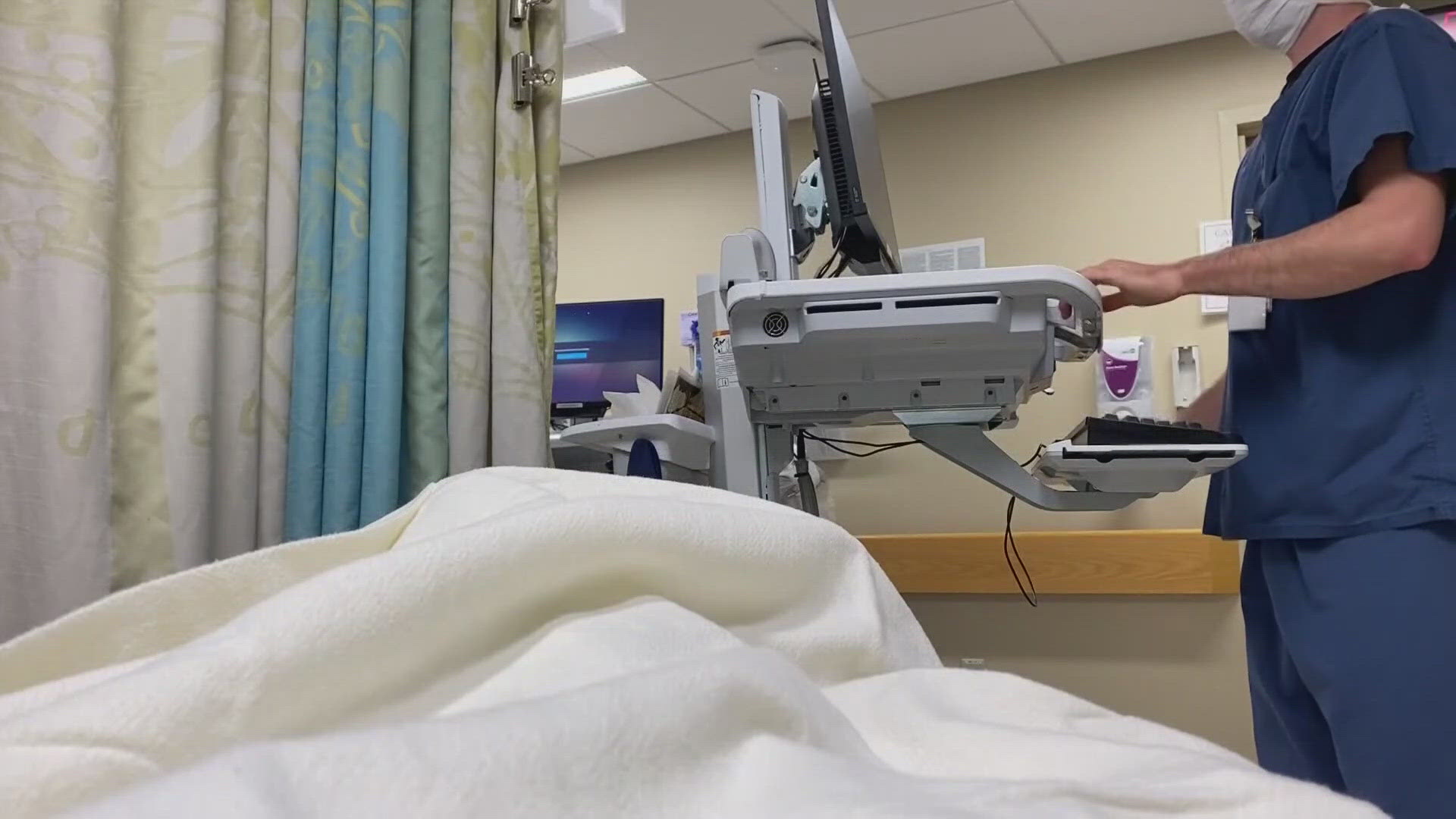AUGUSTA, Maine — In 2023, Maine passed the Paid Family Medical Leave (PFML) law, creating a universal program to help all state workers take paid time off for various medical reasons.
Destie Hohman Sprague is the executive director of the Maine Women's Lobby, the group that's been leading the change.
"You are a server in a restaurant, you get in a car accident, you break your leg and now you can't walk," Sprague said.
She said she's heard the scenarios time and time again where unpaid time off is the only option for people who get injured, become parents, or have to care for a sick family member.
Maine's new Paid Family Medical Leave law will soon take that burden away for most people.
"They're still able to get their paycheck because this is an insurance program everyone pays into," Sprague said.
Beginning in January 2025, all Maine businesses and workers will begin paying 0.5% of their payroll into a fund. Then, starting in May 2026, the money will be used to support paid medical leave.
Before that happens, rules have to be put in place for those paying into the system and those who will end up using the benefits.
"It's really the biggest change to labor law in about 40 years. So, it's a big process figuring out how to build the rules," Sprague said.
In Augusta on Tuesday, some of the rules were contested during a public hearing, the second one the Maine Department of Labor has held to discuss how the program will run.
"We continue to have some concerns of how it will be operationalized," Patrick Woodcock, president and CEO of the Maine State Chamber of Commerce, said.
The group still wants to see more benefits for business owners. Under the PFML law, a company can deny leave to an employee if it will cause undue hardship to that business. However, the rules say this does not apply if the employee has given 30 days of notice.
"It's the busiest time of year for a retailer. If somebody requests November 1 within 30 days for leave, that clearly is the busiest time of year for that employer. In a plain reading of the statute, it's a reasonable hardship for that business," Woodcock said.
The Maine Department of Labor said it has to get the rules finalized in time for contributions to start in January, but will continue listening to feedback.
"We're still going to go through every comment we've received in this period and if there's small changes we can make we'll look at that," Luke Monahan, who directs the PFML program at the Maine DOL, said.
From Sprague's perspective, the undue hardship rules are something that should not be adjusted. In fact, she doesn't believe businesses should have any exemptions for hardship that allow them not to pay their workers medical leave, even under the law.
"The reality is people take time off anyway when they have babies or when they have emergencies. They just don't get paid for it currently," Sprague said.
However, she also said pioneering such a big change means being open to these discussions now and in the future.
"Change is going to be hard on everyone as they figure out the process and as we get to a place where we all agree on the technical parts of the bill," Sprague added.
The state now has twenty months to work out those technicalities.

